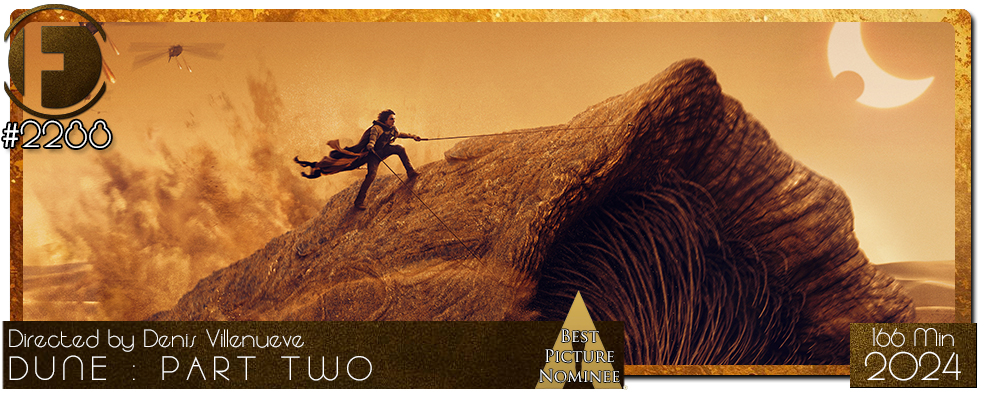Movie Review – Dune: Part Two
Principal Cast : Timothee Chalamet, Rebecca Ferguson, Josh Brolin, Austin Butler, Florence Pugh, Stellan Skarsgard, Dave Bautista, Zendaya, Christopher Walken, Lea Seydoux, Sougeila Yacoub, Charlotte Rampling, Javier Bardem, Babs Olusanmokun, Roger Yuan.
Synopsis: Paul Atreides unites with Chani and the Fremen while seeking revenge against the conspirators who destroyed his family.
********
In my review of Dune: Part One, I wrote that director Denis Villenueve “…takes tropes and clichés in sci-fi and makes them feel fresh, working as both a master visualist and a portrait painter of intimate accents, and between the demands of fans and story purity he also injects genuine humanity…” and, in keeping with this sensibility, the modern master filmmaker crafts a sequel that doesn’t just equal the original instalment, it exceeds it. Towering in scope, genuine in emotional heft, and maximising its stunning production design and jaw-dropping visual effects enveloped by Hans Zimmer’s thunderous score, Dune: Part Two widens and deepens our understanding of the various plotlines and central characters within Frank Herbert’s magnum opus literary text, translates it to the screen in a way that dispenses the overly-descriptive internalised monologues and replaces them with truly astounding cinematic verisimilitude. Although a solidly bladder-testing near-three-hour runtime will crease the brow of even the hardiest cinemagoer, recommending the second film in what is intended as a trilogy (at the time of this review, at least) is one of the easiest things I’ve ever had the pleasure of doing; in terms of pure hard sci-fi cinema there will be few contemporaneous projects to match the impact of Villenueve’s blockbuster return to Arrakis.

Picking up immediately after the events of Dune: Part One, we find Paul Atreides (Timothee Chalamet) and his mother, Lady Jessica (Rebecca Ferguson) isolated from their now decimated forces on the desert planet of Arrakis. They accompany a band of Fremen, indigenous humans living in the deep desert, to escape the marauding Harkonnen forces, led by the cruel Rabban (Dave Bautista) and controlled by the venal, vile Baron Harkonnen (Stellan Skarsgard). As Paul comes to understand the Fremen, who perceive Paul as the answer to a long-fermenting prophecy of salvation against Arrakis’ enslavement as the Imperium’s only source of the valuable Spice, he uses his association and passive hatred of the Harkonnen to exact a plan of revenge against those who killed his father, dragging even the Emperor (Christopher Walken) into the fray alongside Princes Irulan (Florence Pugh), causing a rift between himself and his Fremen lover, Chani (Zendaya). It is only through a final confrontation between Paul and the Harkonnen’s upstart psychopathic warrior Feyd-Rautha (Austin Butler), that the enmity may be put to rest.
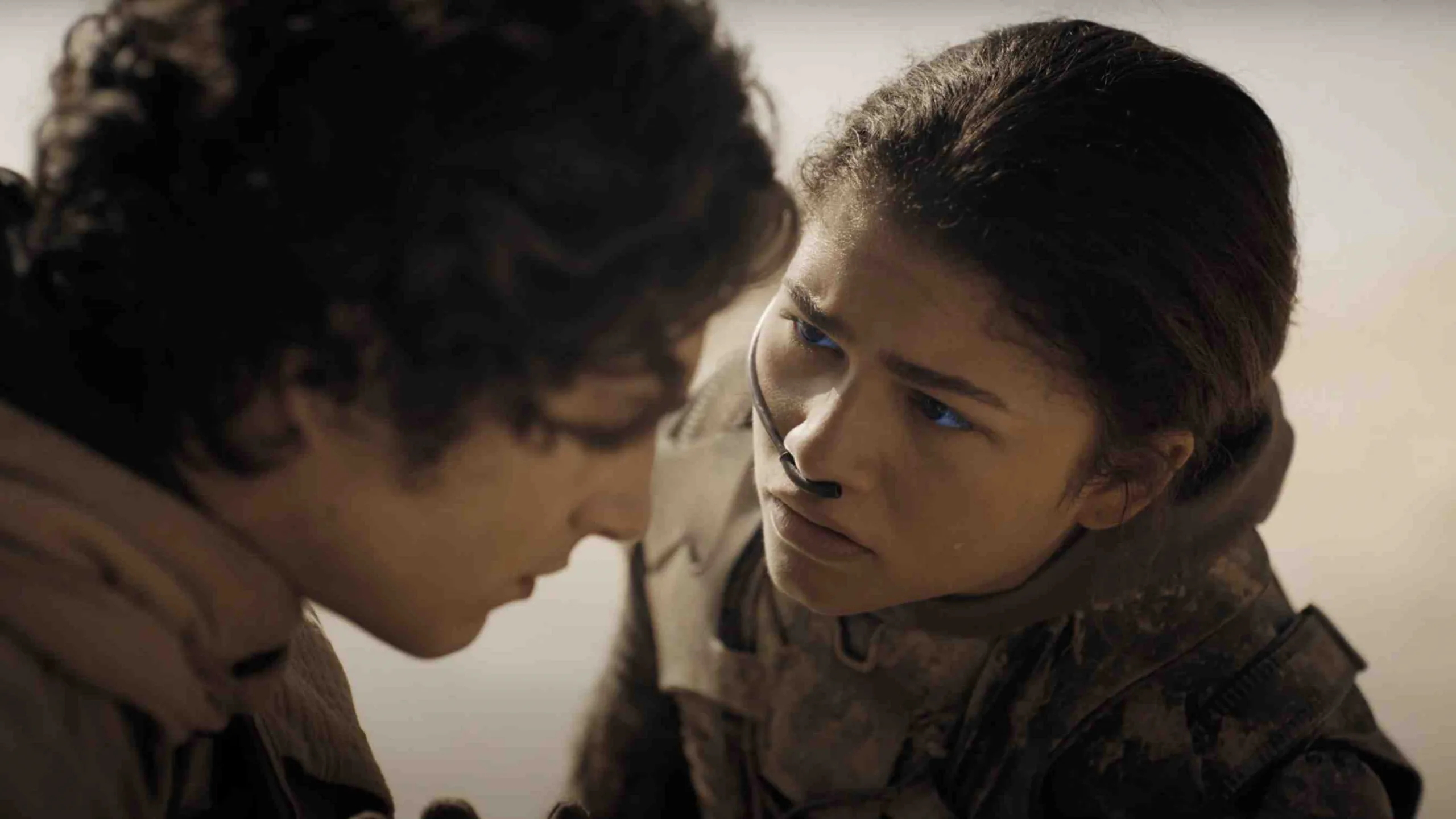
In almost every sense, Dune: Part Two is a superior film to the first, and considering I found the first film to be an instant genre classic that’s some high praise. I don’t say this lightly; I have to agree with many of my online film compatriots to compare Part Two to be the Empire Strikes Back to the first film’s A New Hope – although comparing Dune to Star Wars in any way would prove detrimental to expectations for those unfamiliar with Frank Herbert’s creation. The Dune franchise is what is often described as “Hard Science Fiction”, similar in many ways to Arthur C Clarke or Isaac Asimov and far less rooted in the fantasy elements that made George Lucas’ franchise so popular. Dune was a book series I really struggled with as a young reader – so much so I have up half way through the second book and never went back – and I reiterate the sentiment I made in my review of Dune, that Denis Villenueve has managed to craft a comprehensible film from what was a series of hugely descriptive, overly-expositional monolithic literary tomes.

Here, screenwriter Jon Spaights and Villenueve have devised a script that examines a number of subplots from the first film, and in many ways makes them accessible at a human level moreso than the first film, which upon reflection lacked enough emotional resonance to hold up on multiple viewings. The central relationship of the first film, at least the one that worked best for me, was that between Paul and Lady Jessica, and I’m pleased that in this sequel their relationship is tried and tested in the best possible way, while additional work is given to the connection between Zendaya and Chalamet as the “young hot romantic couple” of this property. There is a surprising amount of time invested in the Harkonnen side of the story too, with the Baron, Rabban and Freya’s triangular insidiousness becoming almost a mirror to the principal study of Paul Atreides and his associates. Heck, the relationship between Paul and former military leader Gurney Halleck (a returning Josh Brolin) assumes the previous film’s father-son dynamic between Paul and Duke Leto (Oscar Isaac is glimpsed as a painting in one brief flashback) and this is developed quite nicely too, with a number of callbacks to events of the first film. Around all the political and social intrigue lurks the omnipresent danger of the planet Arrakis, an enormously punishing world upon which life survives in many forms, notably the gigantic sandworms that lurk at the merest thud of a footstep onto sand. Spaights and Villenueve find that balance between world-building and character development that’s a special kind of alchemy for the big screen, and nail it for the entire film.
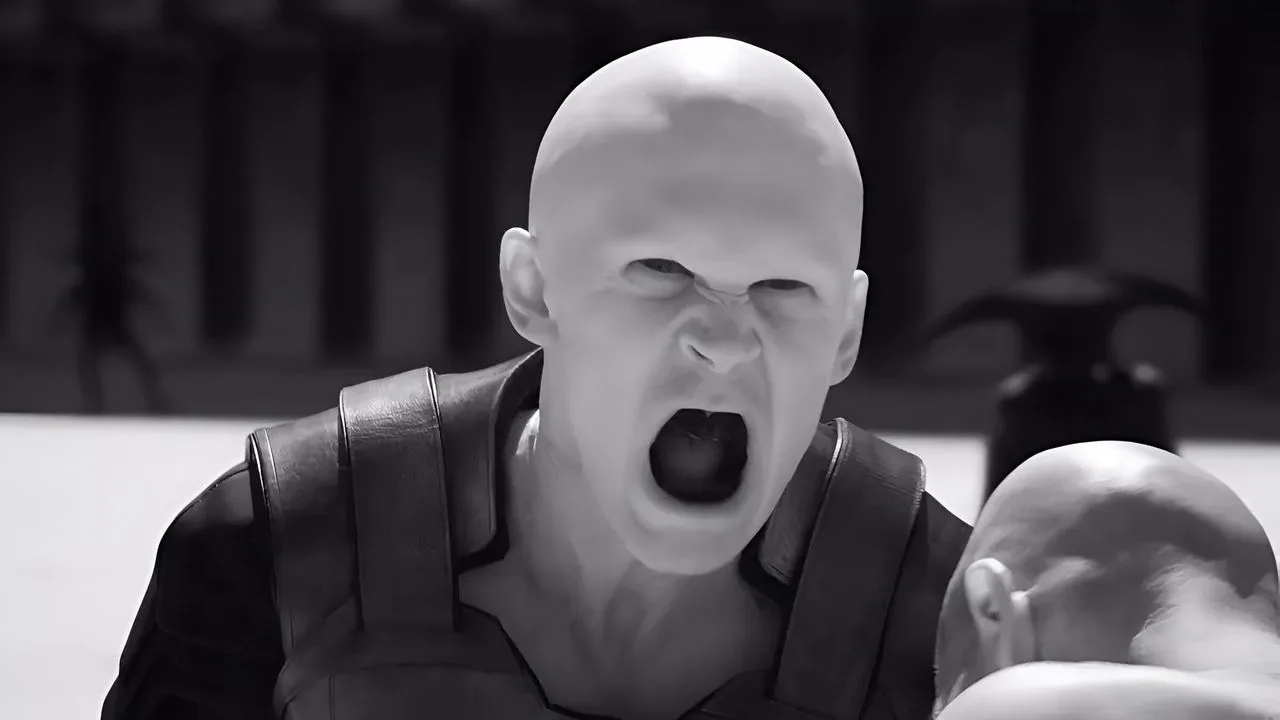
The sequel expands on the first film’s galactic world-building to a degree I wasn’t expecting, including the various non-Arrakis worlds, the Emperor’s home planet, and an extended interlude on the harsh brutalist architecture of Giedi Prime, the Harkonnen’s homeworld, which echoes vaguely Roman society mixed with a very Nazi-era propagandist hierarchy. It’s here we’re introduced (about half-way into the film, mind you) to the film’s primary villain, Austin Butler’s sadistic Harkonnen warrior, Feyd-Rautha, a man prone to rage and outbursts of violence so malignant his reputation has even reached the ear of the Emperor, not to mention the Bene Gesserit order (which sees a returning Charlotte Rampling buried under a stunning burqa-styled costume for much of the film). Butler commands the screen every time he’s on it, and makes for a supremely compelling villain. But it’s a matter of light and shade, really, because Chalamet’s Paul Atreides ain’t no pure-white angel himself. No; while Dune Part One might have had unfamiliar audiences expecting Paul to be the franchise’s Luke Skywalker on his Hero’s Journey, many will be in for a rude shock where the character ends up by the time the credits roll here – for longtime fans of Herbert’s books, you’ll know that Paul isn’t a quote-unquote hero, but he’s also not a capital-V villain. Villenueve, the man who gave us penetrative trauma with Prisoners and an unshackled Ridley Scott opus in Blade Runner 2049, isn’t afraid to turn the screws on his audience. Questionable motives aside, the collision of Paul and Feyd as primary antagonists in each others’ stories is what turns Dune Part Two into an outright masterpiece. In taking some liberties with the film’s conclusion as compared to Herbert’s text, he springs a few late act surprises on the audience that had many gasping in surprise. And oh, what awaits us in the third film!
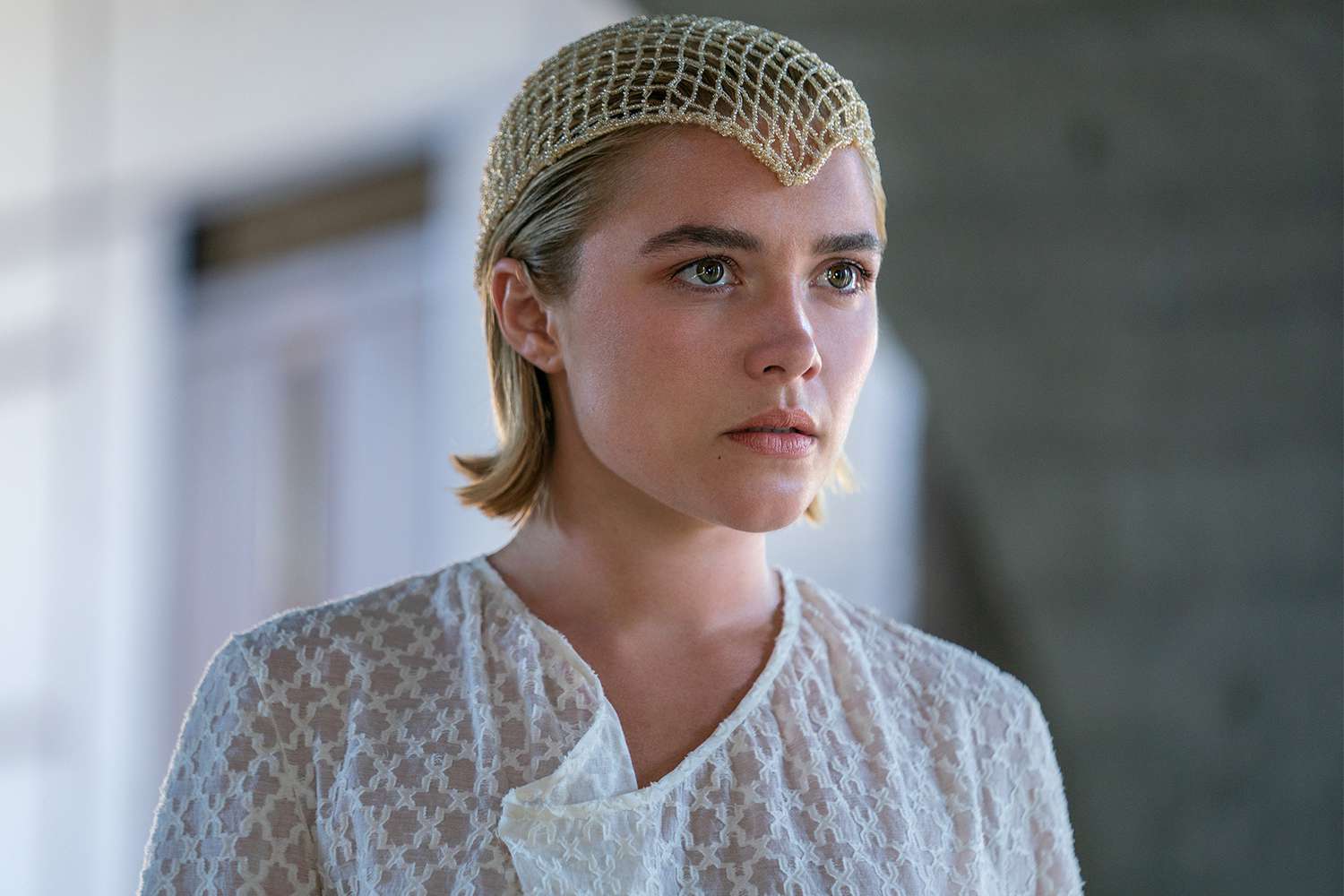
It’s also worth noting the very prominent subtexts Villenueve and Spaights draw out of Herbert’s writing here. There’s a thoroughly turgid sense of suffering in almost every frame, as if every aspect of life in the Imperium is hard work – the Fremen live in a hostile desert, the Harkonnen’s exists in a perpetual state of conflict and hatred – which is perhaps more analogous to the world today than it ever has been, and there are innumerable religious, social and militaristic statements made through the characters and plot points as the film unwinds. One of the most prominent themes of Herbert’s books and Villenueve’s film (specifically this sequel moreso than the first film) is that of religion as a weapon to assume power, and in this particular instance it’s the rise of Paul through the ranks of the Fremen as their messianic saviour against the colonisers – it’s very much a White Saviour trope, but it’s handled well and with credibly poignant writing – that forms what I expect to the the tragic rise and fall of Paul Atreides in the yet-to-be-filmed third movie. Given the Fremen and the desert people are symbolically representative blend of Arabic cultures, the West’s disdain for anything non-White-Christendom-centric this parallel is particularly resonant in 2024; Dune Part Two could be a klaxon call reminding us that absolute power corrupts, absolutely. Rich thematic material for audiences to chew on for years to come, without doubt, and that’s exactly what you want in a film, even an expensive blockbuster like this. Particularly in an expensive blockbuster like this.
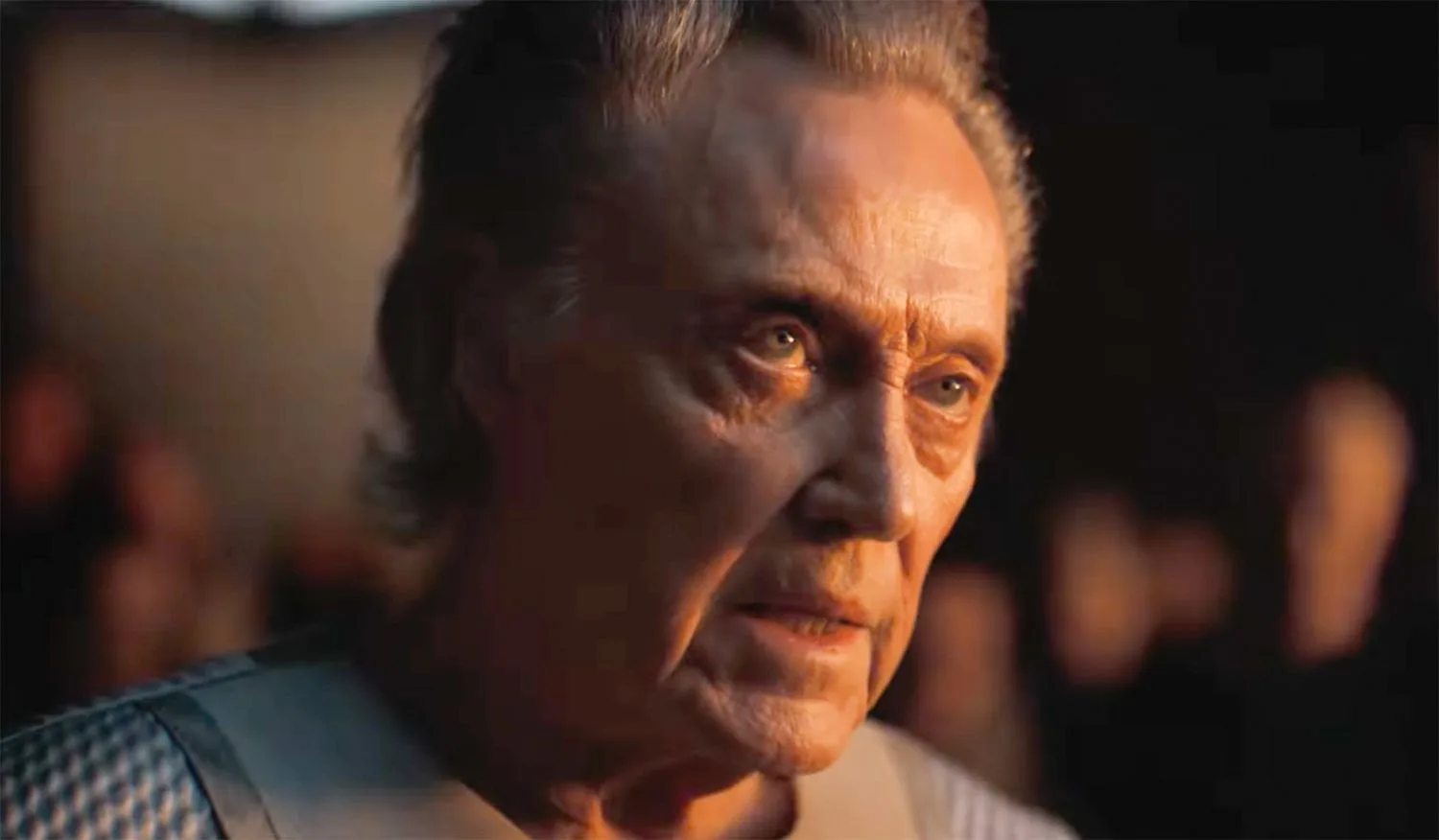
In terms of acting performances, it’s hard to put a foot wrong when you have a stellar cast like this. Zendaya floats through the movie like a true star, Austin Butler quickly becomes the MVP of the whole thing almost from frame one, Christopher Walken manages to turn in a completely restrained performance as the Emperor, and bit-turns from Florence Pugh, Lea Seydoux (as a Bene Gesserit associate who seduces Feyd-Rautha) and Souhelia Yacoub expand the Dune canvas considerably. Special shout-out to Javier Bardem as Stilgar, the film’s chief comic-relief slash Yoda-figure, almost Morpheus-like in his zealotry towards Paul’s ascendancy, who has most of the film’s best lines and expressions. However, it’s the lead cast who truly deliver the goods: Stellan Skarsgard once again dons some fabulously gross prosthesis as the odious Baron Harkonnen, Dave Bautista is great as the highly fallible Rabban, and Rebecca Ferguson’s turn as Lady Jessica – now pregnant with the late Duke Leto’s second child, a daughter with whom she shares a remarkable telepathic link – is fantastic. But it’s Timothee Chalamet proving (finally) that he’s a top-level Actor that took my breath away. I’ve long felt in many of his roles he was trying too hard to act to sink into his characters, and he always seemed to be incapable of shouldering a truly big-screen Lead Character performance, despite the clamour around from his fanbase. Here, as Paul, I think he has crested his celebrity status into that of a remarkably chameleonic actor – he lives and breathes this role and I really felt he gave a performance worthy of his praise; as Paul Atreides, Chalamet is supreme.
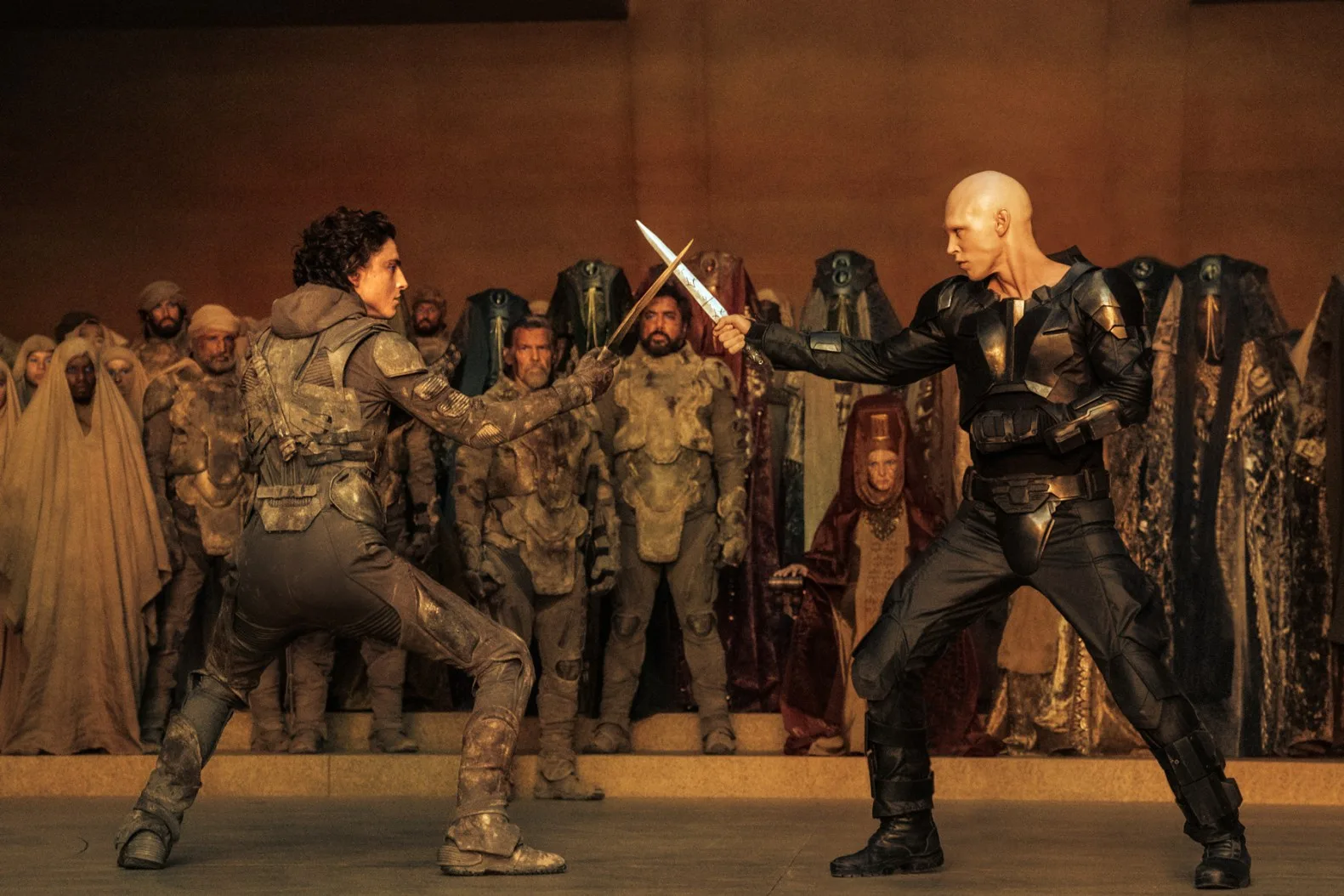
At almost every technical level, Dune: Part Two is a triumph of filmmaking. From production design (again), costume and makeup (again), cinematography (this film is jaw-droppingly beautiful), music (Hans Zimmer will snag an Oscar nomination for this, if not another win, mark my words) and editing, everything about this sequel is functioning at an elite level. Especially, but not exclusively, the film’s staggering visual effects, a mixture of practical and digital that is absolutely seamless (sure, a $200m budget will allow for that), with a near faultless immersion for the audience that awaits you upon seeing this film for the first time. There is one small caveat, however, to my acclamation; it’s something I’ve had a problem with ever since Anakin Skywalker’s podrace in The Phantom Menace, and it’s something that shockingly dragged me out of this film ever so briefly. Hollywood VFX artists are still simply not able to render a convincing stadium crowd. There’s a sequence introducing Feyd-Rautha in a Harkonnen colosseum that involved a lot of reaction shots of vast grandstands filled with roaring crowds, and they looked so fake, so manufactured and not-of-this-world (oh, you know what I mean) that I was convinced not only had I slipped into the Uncanny Valley but I’d taken up residence there. It’s weird, but the representation of vast armies colliding in the desert sands of Arrakis and massive sandworms and ornithopters and landscapes beyond our understanding looked detailed, intricate and hyper-realistic, but when somebody had to come up with 100,000 cheering Harkonnen’s watching Feyd-Rautha engage in gladiatorial combat it looked like a shitty game of Guess Who painted silver.
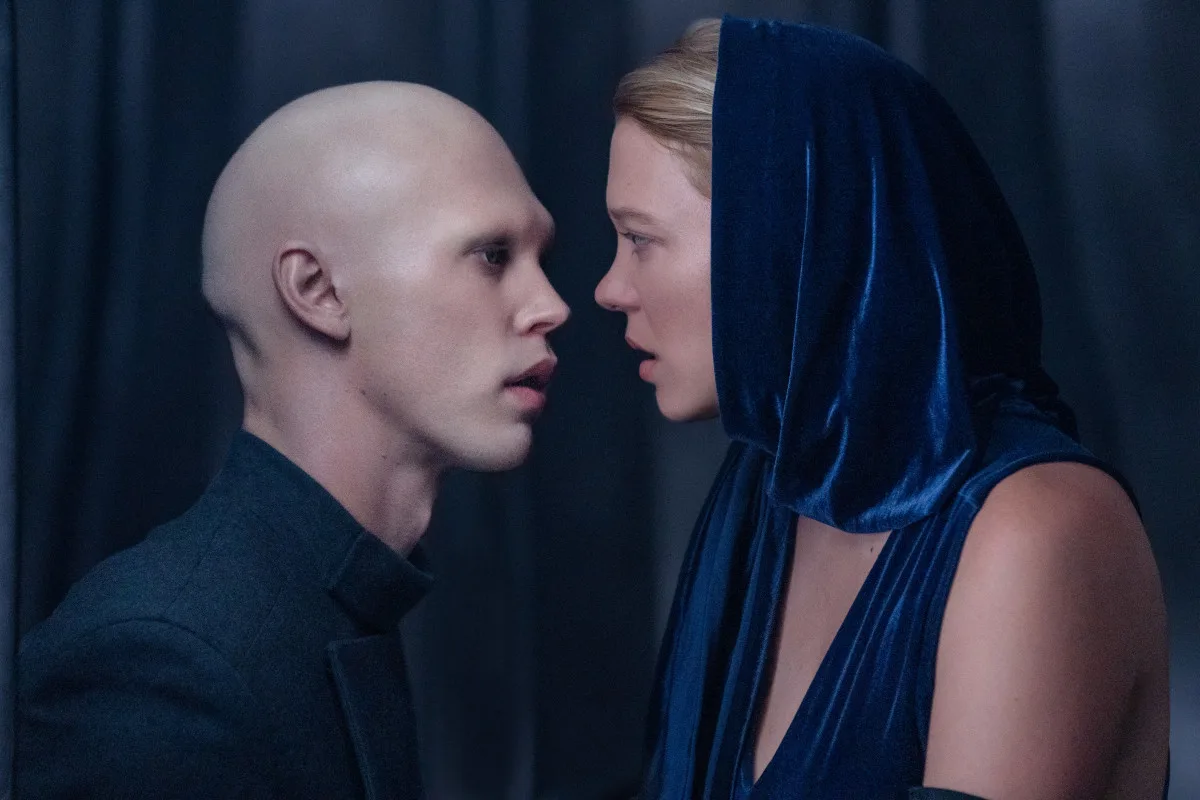
The other thing I really must complement Villenueve and his team on is the film’s sound design, arguably one of the most full-throated chest-punching aural soundtracks outside of a Transformers film. Dune: Part Two sounds amazing, from deep cavernous echoes, thunderous spice-mining rumbles to catastrophic explosions threaded throughout the film’s action sequences, but remarkably the film’s quieter moments also remain astonishing for their clarity and depth. Whenever a sandworm appeared on the screen, the theatre practically shook itself apart with the ferocity of the sound design. Of course, the accompaniment of Hans Zimmer’s Arabic-influenced musical score, containing everything from throat singing to Bedouin-inspired desert calls and cacophonous, raucous alien themes to elevate the on-screen visuals, is equal to the task. The Harkonnens, representative of the evils of capitalism in many respects, are afforded a cold, metallic theme, whilst the Fremen and Arrakis-based societies are afforded a more ethereal tonality, almost grounded in the sand, and it’s simply wonderful. Every piece of this film is a work of creative genius, working in symphony with the the other parts to form a truly astounding cinematic achievement.
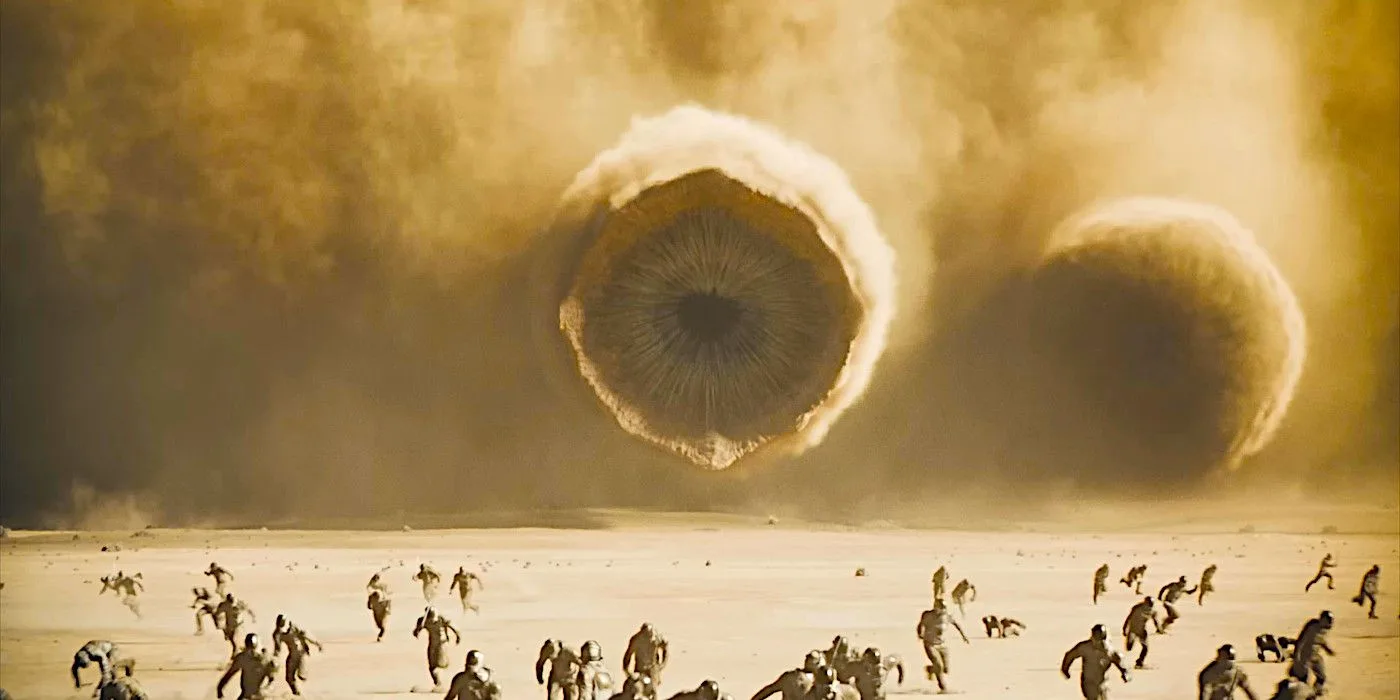
If the first Dune was a pre-emptive strike, then Part Two is the outbreak of war: expansive, thrilling, engaging, deeply thematic (you’ll probably find more to think about here than I’m able to write about in this review) and flat-out masterful, Denis Villenueve proves himself a titan of the medium and is crafting one of the truly great trilogies of the new millennium, alongside The Lord Of The Rings and the rebooted Planet of The Apes franchises as a sequence of films that only improve as they go along. Part Two is easily better than the first, and I can only hope he maintains this level of consistency with the third film to come. Hugely, highly recommended, you will not be disappointed.

